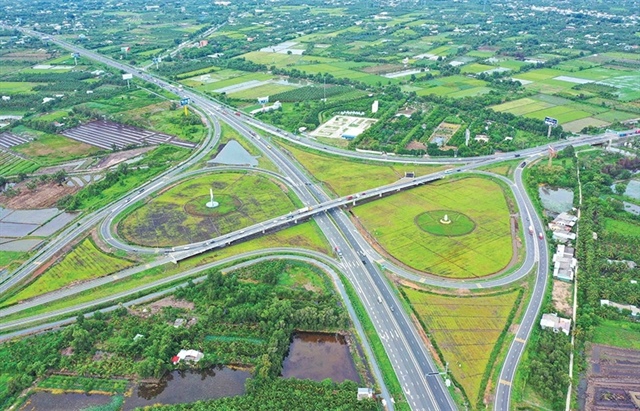Ministries urged to take actions to prevent Chinese businessmen-cheaters
Ministries urged to take actions to prevent Chinese businessmen-cheaters
The local authorities and competent agencies stay irresponsible, while farmers are too greedy for gains. This explains why Chinese still can collect farm produce in Vietnam and trick Vietnamese.

Dr.Le Dang Doanh, a well-known economist, pointed out that Chinese come to Vietnam to collect farm produce with unclear purposes and trick Vietnamese farmers.
He went on to say that the collection of cashew leaves, sweet potato leaves should be seen as an action aims to sabotage the economy, not a business behavior.
According to Doanh, a business behavior is the trade which brings benefits to both the parties.
Doanh has called on the watchdog agencies to carry out serious surveys on the behaviors and tricks played by Chinese. The surveys would provide necessary information for the Ministry of Industry and Trade to analyze and give advices to Vietnamese farmers who do business with Chinese.
“Chinese businessmen must not be allowed to do anything they want in Vietnam,” Doanh said, adding that Chinese have conducted the behaviors in Vietnam only.
“I think the National Assembly’s Deputies have to question government agencies about the problem,” he said.
Agreeing with Doanh, Professor Vo Tong Xuan, an agriculture expert, said when trying to collect farm produce in large quantities in Vietnam, Chinese aim to sabotage the Vietnamese economy.
Xuan emphad that it is the local authorities and competent agencies, not the farmers, should be blamed for the problem.
Vietnamese farmers have suffered from their greed, but they need to be guided and led by the competent agencies. The watchdog agencies should have gathered the farmers and shown them how to do business with Chinese.
An analyst said he cannot understand why Vietnamese watchdog agencies still have not conducted the market surveys to find out what Chinese want and why they try to collect Vietnamese farm produce in large quantities. To date, they remain passive, seeing Chinese businessmen tricking Vietnamese farmers.
A group of researchers, including Dr. Truong Duy Hoa, Dr. Nguyen Thanh Van and Dr. Nguyen Hong Quang from the South East Asia Institute of the Vietnam Academy of Social Sciences, has noted that Chinese businessmen have been playing dirty tricks only in Vietnam.
“I have not heard of any cases occurring in Cambodia,” said Dr. Van, Head of the Division on Cambodian studies.
Dr. Hoang Tho Xuan, an expert from the Trade Research Institute, also said that the Ministries of Agriculture and Rural Development, and Industry and Trade should do more than warning farmers about the risks.
“It is necessary to find out where the collected farm produce are carried, what the produce have been used for in order to take reasonable reactions,” Xuan said.
An analyst has noted that Vietnam can cite two important legal provisions to stop the Chinese behaviors. First, under the WTO commitments, foreign businessmen must not set up their networks to collect farm produce directly from Vietnamese farmers.
Second, Vietnam, in the trade agreements, does not commit to allow the presence of foreign individual businessmen in the trade deals in Vietnam.
vietnamnet



















